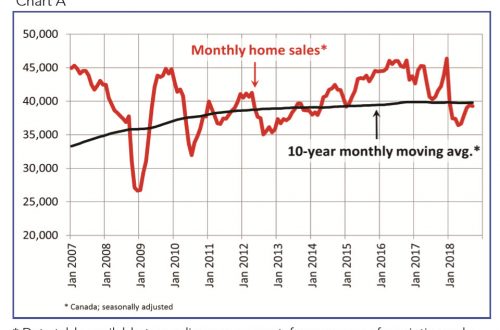For first-time homebuyers, navigating the mortgage world can be quite overwhelming.
There are a lot of different terms, concepts and options that can be confusing for anyone embarking on the journey of homeownership. Russell Anderson, District Vice President of the Calgary Central District with TD Bank, advises people to do their homework.
“It’s always great to read a little bit before you head in to talk to anybody. First and foremost, if you’re a first-time homebuyer, you need to go in and speak to somebody face-to-face and ask your questions,” says Anderson.
How much are you able to afford? What sort of benefits are you looking for? What do you want to achieve in the end? Based on your needs, your bank can provide different options, he says. Anderson recommends people do their homework early before they start house hunting.

“Go in and ask early. Even if you think you’re a couple of years away from buying a house, it doesn’t matter,” he says. “You don’t want to wait until the moment you think you’re ready.”
Pichu Kalyniuk, Account Manager with Canada Mortgage and Housing Corporation, says many first-time buyers are doing a lot of research online and through social media.
“At the end of the day, however, you do need to speak to somebody. You need to speak to a trusted mortgage professional who can guide you through the ins and outs of a mortgage,” says Kalyniuk.
Trying to understand all of the mortgage jargon can be a challenge. Here’s a breakdown of a few common terms and concepts.
The basics:
Mortgage
A loan secured by real estate/property that you pay off over time. You’ll be paying back the money you borrowed to your lender (with interest) and eventually, you’ll be mortgage free!
Getting pre-approved for a mortgage should be a first step when looking for a home to buy. Pre-approval means that a lender has qualified you for a loan based on your current income and credit history. A pre-approval usually specifies a term, mortgage amount and guaranteed interest rate for the next three months – even if mortgage rates go up while you’re house hunting.
Down payment
The amount of money you put towards the price of a home. Whatever you don’t put down is the amount you are borrowing.
Amortization period
The total number of years it takes to pay off your mortgage loan completely. You choose the number of years when you apply for a mortgage loan. Most first-time buyers pick the longest amortization period available. If your down payment is less than 20%, your maximum amortization period is 25 years. If your down payment is greater than 20%, you could have an amortization period of up to 30 years.
Mortgage term
The length of time you’re committed to a mortgage rate, lender and associated conditions.
Payment schedule
You can determine your payment schedule from options ranging from weekly to monthly.
Fixed interest rate
This means your interest rate will not change throughout the term of your mortgage loan and neither will the amount of your principal and interest payments.
Variable interest rate
With a variable rate mortgage, the interest rate can fluctuate with any changes in the prime rate.
Open mortgage
An open mortgage is best suited for those who plan to pay off or prepay their mortgage loan without worrying about prepayment charges. It allows you the freedom to put prepayments toward the mortgage loan anytime until it is completely paid off.
Closed mortgage
A closed mortgage provides the option to prepay your mortgage loan each year, up to 15% of the original principal amount for most lenders.
Taking out a mortgage is a very big decision. Take your time and consider all of your options carefully with a trusted broker.
“For some people, [buying a home] is probably the biggest purchase of their lives,” says Kaylniuk. “So you just don’t want to enter into it lightly.”

Be prepared to spend some time researching your best mortgage options. You’re going to have to shop around and you’re going to have to do some of your own research as well.
“The more informed you are, the more confident you’re going to be in your decision,” Kaylniuk adds. “My opinion is always: the more you know, the better.”
The article above is for information purposes and is not financial advice or a substitute for financial counsel.
courtesy: /www.realtor.ca




